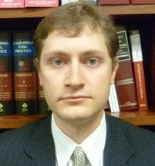Grinberg: More of the Same From Sacramento
Wednesday, March 2, 2022 | 1
Aside from the various COVID-19-related presumption laws, shortening investigation periods from the 90 days afforded under Labor Code Section 5402 to 30 or 45 days (depending on the applicable section), defendants are already hard-pressed to properly investigate a claim within the time allotted.

Gregory Grinberg
Let’s say an employee makes a claim for Monday-morning back injury, and the supervisor was aware that the employee was helping a family member move that weekend. Cause for suspicion, no? Well, a proper investigation would include medical and factual inquiries.
If the parties want to go to a qualified medical evaluator on the issue, there are 15 days from the delay notice, another 30-60 days to get an appointment on the books, and then another 30 days or so at least for the report. Best-case scenario: If a delay notice goes out on the same day the claim form comes in, we’re looking at 75 days for a report. Realistically, though, the parties will not even have a QME evaluation set for the 90-day period most of the time.
Aside from this, there is the matter of the factual investigation — a deposition, obtaining records, tracking down witnesses. To complete a full investigation within 90 days is a challenge on its own.
So now let’s take a look at Senate Bill 1127, which sounds a lot like SB 335, originally discussed in an earlier blog post. SB 1127, introduced earlier this month, would wreak havoc in a lot of ways:
- It would increase the maximum number of temporary disability weeks from 104 to 240 for post-Jan. 1, 2023, injuries, as found in Labor Code Section 3212.1 (cancer and leukemia).
- It would reduce the investigation period of Labor Code Section 5402 from 90 days to 60 days.
- It creates Labor Code Section 5414.3, which imposes penalties of five times the amount of benefits “unreasonably denied” for injuries under Labor Code sections 3212 and 3213.2 (firefighters, law enforcement, etc.), up to a maximum of $100,000. Most importantly, this would apply to all injuries, regardless of the date of the injury or the so-called “unreasonable” denial.
So let’s ask a question: If the employer has only 60 days to deny the claim and cannot conduct a full investigation within those 60 days, would a denial on day 59 on the basis that “we have not completed our investigation and are awaiting additional records, reports, etc.” be unreasonable?
I imagine that, if SB 1127 becomes law, we will see a lot more denials, but also a lot more depositions of claims examiners to build up these penalty claims.
As always, I hope that sense will prevail, and rather than squeeze every last drop out of California’s employers, Sacramento will instead focus its efforts on creating a climate that allows businesses to thrive. As the saying goes, Hollywood makes entertainment, Silicon Valley makes technology, most of California makes food, and Sacramento makes it difficult.
Gregory Grinberg is managing partner of Gale, Sutow & Associates’ S.F. Bay South office and a certified specialist in workers’ compensation law. This post is reprinted with permission from Grinberg’s WCDefenseCA blog.







Comments